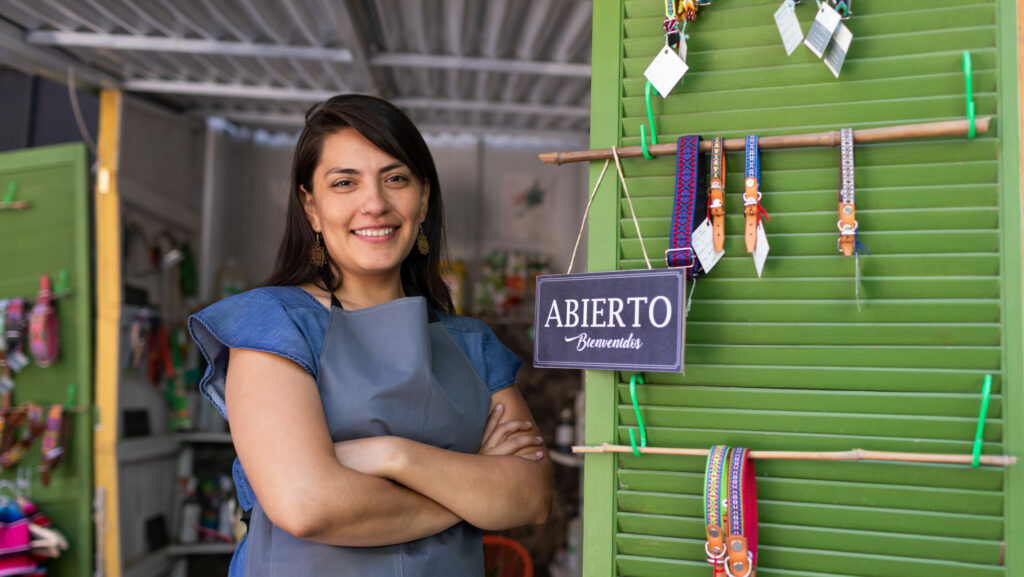FOR IMMEDIATE RELEASE
Contact: lppipress@luskin.ucla.edu
The first report of the series, which focuses on California, sheds light on financial, technological, environmental, and pandemic challenges faced by ethnic-owned businesses
LOS ANGELES (November 2, 2023) – The UCLA Latino Policy and Politics Institute (UCLA LPPI) has launched The Economic Recovery & Entrepreneurship Project (TEREP), a new research portfolio focusing on ethnic entrepreneurship in California, Texas, and Arizona. The first report, which focuses on California, was published today. It provides insights on ethnic small business owners’ access to capital, use of digital technology and environmental sustainability practices, and experiences with COVID-19 and climate change.
After conducting over 600 phone surveys with California small business owners and executives, the study has revealed several key findings:
- Black- and Latino-owned businesses face more barriers than white-owned businesses to accessing financial capital.
- Twice as many ethnic-owned businesses reported to have been largely negatively affected by the COVID-19 pandemic than white-owned businesses.
- Although engagement in online technology for sales is not high among ethnic-owned businesses, they were more likely to report falling victim to cybersecurity attacks.
- Black and Asian-owned businesses expect climate change to impact their business’s finances and workers’ health and safety.
- White- and Latino-owned businesses reported a greater level of understanding of the impacts of environmental sustainability practices on their business than Black and Asian-owned businesses.
“As ethnic-owned businesses continue to grow, their equitable integration into economic development processes and environmental sustainability planning remains imperative, given their significant contributions to community well-being through job creation, revenue generation, and the promotion of social and cultural diversity,” said Silvia R. Gonzalez, Director of Research at the UCLA Latino Policy and Politics Institute. “This research arrives at a crucial time as California policymakers, advocates, and business leaders seek to continue addressing the economic impacts of the pandemic and are hearing calls to foster a more inclusive economy that supports the growth of all communities,” said Julia Silver, Research Analyst for the project.
The new research also includes interviews with several California business owners and executives. Interview findings speak to the difficulties that ethnic-owned businesses are currently facing. Dora Herrera, one of the study’s interviewees and executive manager at YUCA’S, a family-owned Mexican restaurant, shared a firsthand account of how the COVID-19 pandemic impacted the vitality of her business. “I told my sister, ‘If the money doesn’t come in Friday or Saturday, we’re gonna have to close on Monday.’ And the money, the grant, dropped on Saturday. We were that close to just closing.” Herrera’s experience is just one of the many accounts captured in the study.
This report was made possible by the generous support of the Wells Fargo Small Business Philanthropy, the JP Morgan Chase Global Philanthropy, and the James Irvine Foundation.
Read the full report here: https://latino.ucla.edu/research/business-as-usual-ca/
###
About UCLA Latino Policy and Politics Institute
The UCLA Latino Policy and Politics Institute addresses the most critical domestic policy challenges facing Latinos and other communities of color through research, advocacy, mobilization, and leadership development to expand genuine opportunity for all Americans.

